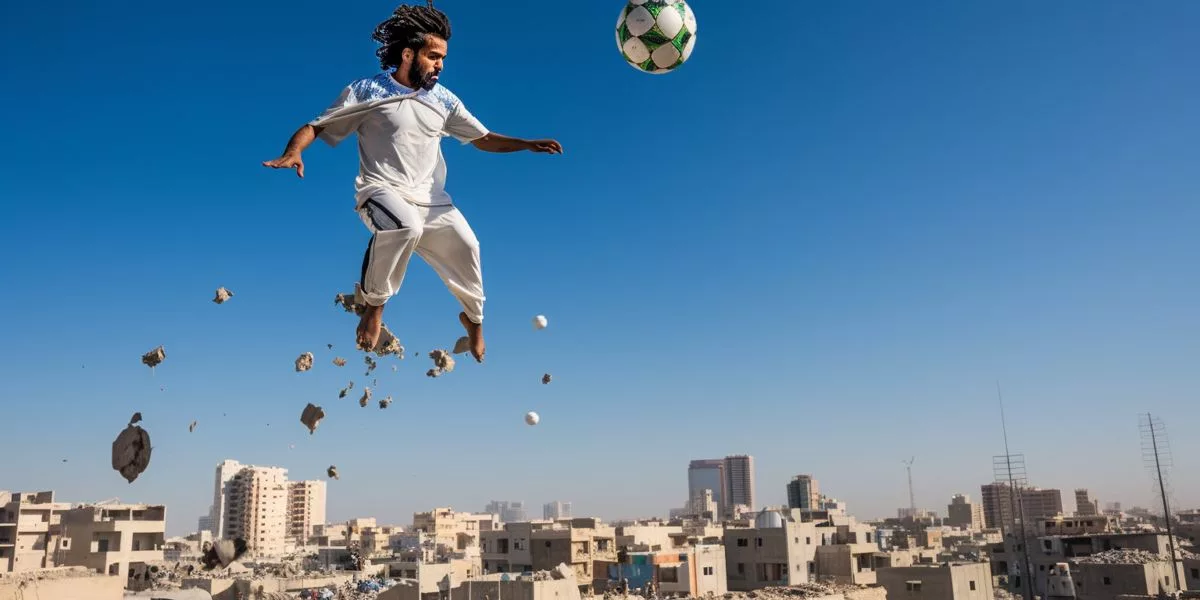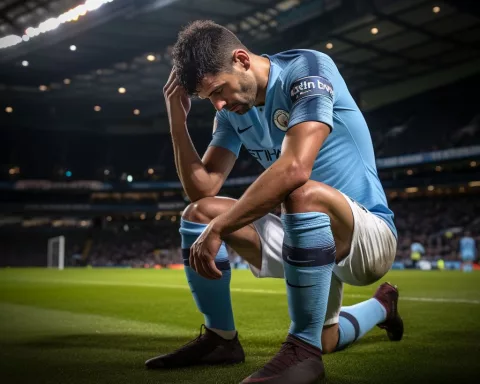The Club World Cup is a prestigious football tournament where the world’s top clubs compete for the title. Manchester City is making their debut in the tournament under the guidance of their skilled manager, Pep Guardiola. However, the proposed expansion of the tournament raises concerns about player welfare, as the schedule is already demanding. Despite these challenges, the tournament represents the evolution and resilience of football as a sport.
What is the Club World Cup?
The Club World Cup is a global platform where the world’s top football clubs battle for the esteemed title. The tournament stands as a celebration of the zenith of club football, with the select few who have made an indelible mark in football lore competing against each other. Manchester City, the current European champions, recently made their debut in this esteemed tournament, making waves in the football world.
As spectators worldwide converge under the bright sunlit sky of Jeddah, Saudi Arabia, anticipation fills the air. They are here to experience the thrilling spectacle of the world’s crème de la crème football clubs battling for the esteemed Club World Cup. Among these clubs is Manchester City, the current European champions, making their debut in this esteemed tournament under the expert direction of their dynamic manager, Pep Guardiola.
Guardiola, a figure known for his philosophical approach and profound love for the game, shared his joy and gratitude at being part of the Club World Cup. In a press conference prior to the match, he affirmed, “It’s a first for Manchester City, and we are thrilled to be here.” He sees their participation in this event as a reflection of their remarkable past achievements. This view resonates with the tournament’s spirit, which stands as a global platform for celebrating the zenith of club football and is an honor bestowed on the select few who have made an indelible mark in football lore.
The Challenge Ahead: Manchester City vs. Urawa Red Diamonds
The stage is perfectly set for Manchester City to confront Japan’s Urawa Red Diamonds in the semi-finals. The triumphant team will eventually face either Egypt’s Al Ahly or Brazil’s Fluminense in the grand finale. The stakes are high, and the pressure is immense, but Guardiola and his team of football virtuosos are well-acquainted with such intense environments. However, the challenge isn’t merely about the upcoming matches, but about adapting to the ever-changing dynamics of global football.
Recently, FIFA proposed a significant revamp to the Club World Cup, planning to enlarge it to 32 teams from the year 2025 and extending the tournament over nearly a month from June 15 to July 13 in the United States. While this reform holds promise for inclusivity and global expansion of the sport, it also raises concerns regarding the players’ welfare, considering the increased number of matches added to an already hectic schedule of club and international games.
On Players’ Welfare and the Changing Face of Football
Guardiola, known for championing his players’ rights, hasn’t hesitated in voicing his concerns regarding the proposed changes. He highlights the shrinking recovery window between seasons, which poses a threat to the players’ health. Guardiola maintains that while he doesn’t oppose the introduction of new tournaments, the players’ health should always take precedence. “My complaint is about the insufficient recovery time for players year after year,” he stated.
Bernardo Silva, City’s Portuguese star, echoes Guardiola’s concerns. He draws attention to the physical toll the game places on players, highlighting the risk of injuries and burnout due to the relentless schedule. Silva also underscores the potential impact on fans, noting that the exhaustive calendar might lead to less thrilling and sub-par matches.
As football continues to adapt and evolve on a global scale, these concerns underline an urgent need for equilibrium – striking a balance between the sport’s expansion and the welfare of its main protagonists, the players. The football field is a stage, and the players are the performers. Without their health and energy, the game loses its allure, intensity, and spirit.
Looking Beyond the Matches: Evolution and Resilience
As the Club World Cup progresses, and Manchester City gears up for the semi-final showdown, the narrative extends beyond the matches themselves. It presents a tale of football’s evolution and the inherent challenges it brings. Guardiola’s aspiration to “close the circle” at the Club World Cup is not merely a personal ambition, but a testament to his team’s resilience amidst constant change and challenge. It encapsulates the story of a sport, a team, and a manager – adapting, evolving, and thriving in the global stage of football.
1. What is the Club World Cup?
The Club World Cup is a global football tournament where the world’s top football clubs compete for the esteemed title.
2. What is Manchester City’s participation in the Club World Cup?
Manchester City, the current European champions, recently made their debut in this esteemed tournament, making waves in the football world.
3. Who is Manchester City’s manager, and what is his view on the Club World Cup?
Manchester City’s manager is Pep Guardiola, a figure known for his philosophical approach and profound love for the game. He sees their participation in this event as a reflection of their remarkable past achievements.
4. Who is Manchester City playing in the semi-finals of the Club World Cup?
Manchester City is playing Japan’s Urawa Red Diamonds in the semi-finals of the Club World Cup.
5. What are the concerns regarding the proposed expansion of the Club World Cup?
The proposed expansion of the Club World Cup raises concerns about player welfare, as the schedule is already demanding. This reform holds promise for inclusivity and global expansion of the sport, but it also raises concerns regarding the players’ welfare, considering the increased number of matches added to an already hectic schedule of club and international games.
6. What are the views of Guardiola and his players on the proposed changes to the Club World Cup?
Guardiola and his players are concerned about the insufficient recovery time for players year after year, posing a threat to the players’ health. They maintain that while they don’t oppose the introduction of new tournaments, the players’ health should always take precedence. They draw attention to the physical toll the game places on players, highlighting the risk of injuries and burnout due to the relentless schedule.












